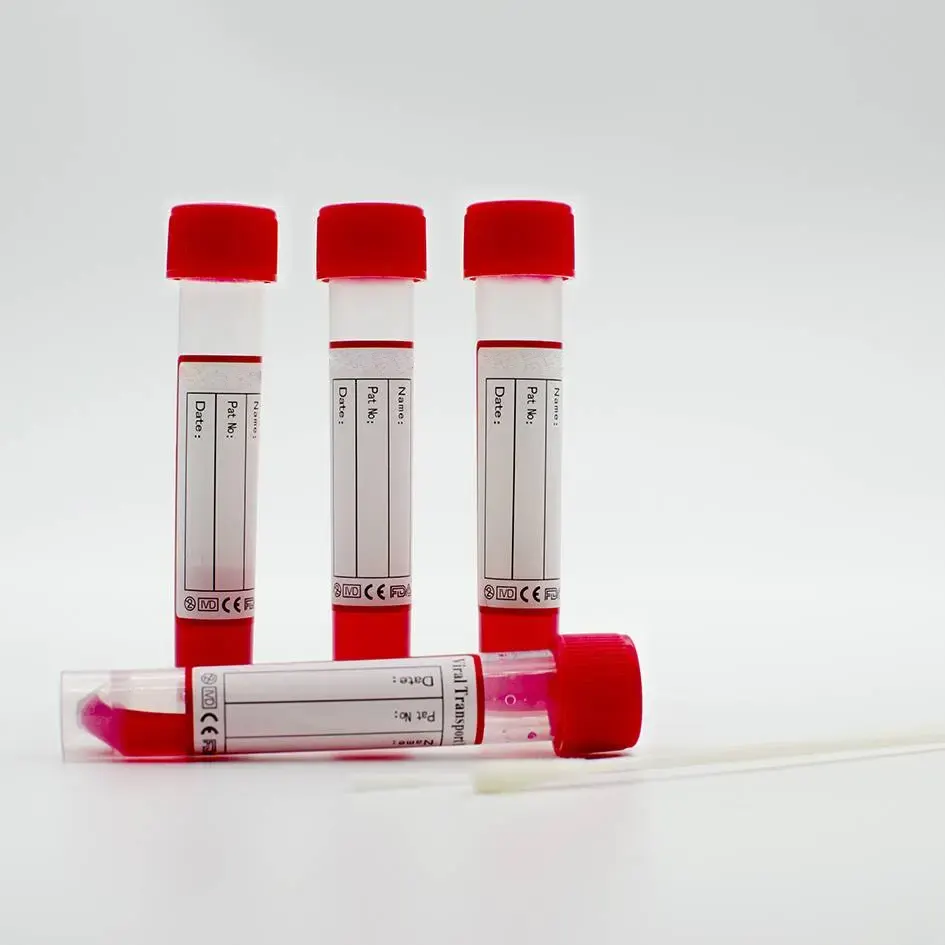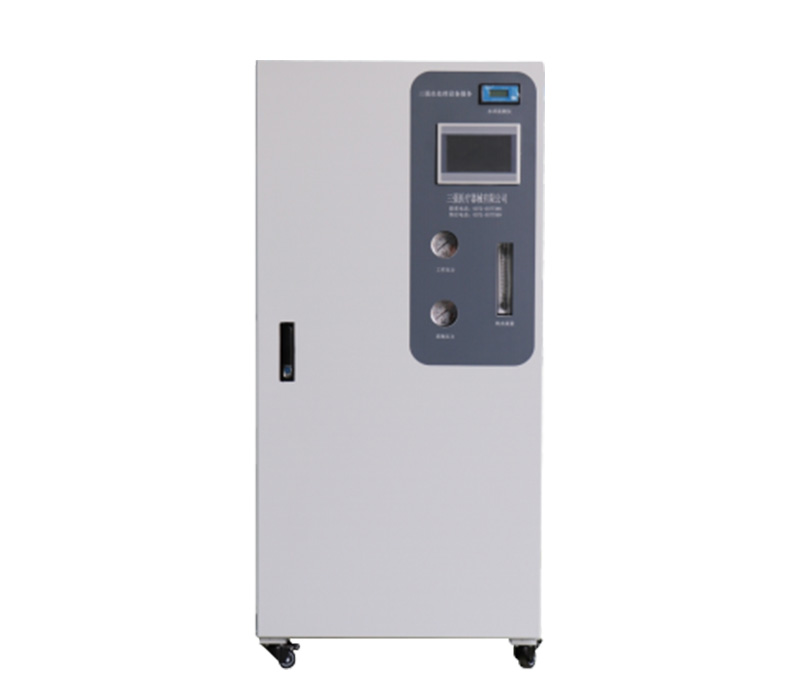Disposable Vtm Tube

Non-Inactivated Viral Transport Media Tube
Product Name: Non-Inactivated Viral Transport Media Tube Reagent Color: Red Tube Size: 16*100mm Reagent Volume: 2~3ml Scope of application: This product is suitbale for the collection, transportation and storage of virus sampling. Non-inactivated preservation solution: It is mainly a virus-maintaining preservation solution that is improved based on the delivery medium. It can maintain the activity of the virus in vitro and the integrity of the antigen and nucleic acid. It contains Hanks liquid foundation, gentamicin, fungal antibiotics, BSA (V), cryoprotectant, biological buffer and amino acids, etc., and it is not easy to protect the virus protein shell Decomposition, to a large extent, maintain the originality of the virus sample. In addition to nucleic acid extraction and detection, this storage solution can also be used for virus culture, isolation, and antigen detection. However, long-term storage after sampling requires strict low temperature.
- FOB Price:US $0.5 – 9,999 / Piece
- Min.Order Quantity:50,000 Piece/Pieces
- Supply Ability:200,000Piece/Pieces per day
-
Description
A Non-Inactivated Viral Transport Media (VTM) Tube is designed for the collection, transportation, and temporary storage of viral specimens, such as nasal or throat swabs, for laboratory testing. Unlike inactivated VTM tubes, these tubes preserve the viability of the virus, allowing for culture-based diagnostics in addition to molecular tests like RT-PCR. The media keeps the virus stable and intact, ensuring accurate detection during the diagnostic process. These tubes are essential for viral surveillance, research, and diagnostic laboratories that require the virus to remain viable for further analysis.
Features of Non-Inactivated Viral Transport Media Tube
- Preserves Viability of Virus: The transport media keeps viral particles intact, maintaining their viability, which is essential for viral culture studies and molecular diagnostics, including RT-PCR, antigen detection, and sequencing.
- Pre-Added Transport Media: The non-inactivated viral transport media is pre-filled in the tube, which saves time during sample collection and ensures consistent preservation of the specimen.
- Leak-Proof Design: The tube cap is designed to seal securely, preventing any leakage or contamination during transit, while maintaining the sterility and safety of the specimen.
- Tube Size Options: Available in different sizes (commonly 3ml, 5ml, or 10ml) to suit various testing requirements and sample types, including nasopharyngeal and oropharyngeal swabs.
- Sterile and Ready-to-Use: Each tube is sterilized to eliminate any risk of contamination before sample collection, ensuring that the specimen is not compromised before reaching the lab
Applications of Non-Inactivated Viral Transport Media Tube
- Viral Research: Used in research institutions for studying live viral specimens and conducting tests on virus viability, pathogenesis, and response to treatments.
- Hospitals and Healthcare Centers: Commonly used in healthcare facilities to collect viral samples for routine testing and emergency diagnostics, where viral culture may be required.
- Public Health Surveillance: Plays a crucial role in public health monitoring and disease outbreak management by safely collecting viral samples from large populations.
- Diagnostic Laboratories: Essential in laboratories for analyzing viral specimens where maintaining the viability of the virus is crucial for comprehensive diagnostic and research testing.
More Vesemed Products
View all patient monitors, medical devices and products in one convenient location.









